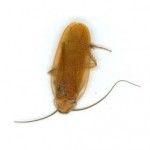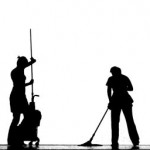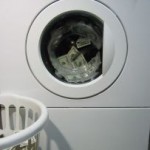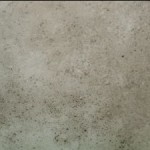 “Good Night, sleep tight, don’t let the bed bugs bite” is a saying that has become so common in our evening routines. Bed bugs have been around for thousands and thousands of years. Previously on a strict diet of body fluids of animals they have recently found another target – us.
“Good Night, sleep tight, don’t let the bed bugs bite” is a saying that has become so common in our evening routines. Bed bugs have been around for thousands and thousands of years. Previously on a strict diet of body fluids of animals they have recently found another target – us.
Normally bed bugs are found in places where overall cleanliness is not of a high standard. However, it is a common problem everywhere and probably each and every one of us will have to face it sometime. Getting even a couple of these visitors can complicate things enormously as one bug can reproduce 3 times during its life laying 500 eggs at the rate of 5 eggs per day. It is therefore very important to know how to avoid them and how to act if they have already made a home in your bed.
Keep the room clean and well dusted at all times. Wash with a proper floor cleaner regularly. Change your bed linen often and meticulously clean rugs and mattresses. Consider buying mattresses and pillow covers that are bed bug proof. Inspect. Look for brown, rusty looking spots of bug excrement on your mattresses or bed boards and if you spot any, act immediately!
Prepare the area
• If the infestation is severe, things like stuffed animals, soft toys or blankets or even laptops should be removed, cleaned with a vacuum cleaner, and bagged for a couple of days.
• Where possible dismantle bed frames. By doing so you can expose additional bedbug hiding sites.
• Remove drawers from desks and dressers, to inspect and clean all hiding spots.
Inspect
• Look in any place that is dark and isolated. Inspect adjoining rooms where an infestation is found.
• Most popular hiding places for these bugs are cracks and crevices in head and foot boards and attached side railings and supports. They can also hide in tears on mattress.
• Stand up the box spring and shine a flashlight through the gauze fabric to expose bed bugs.
Treat
• Vacuum along baseboards, nearby furniture, bed stands, rails, headboards, footboards, bed seams, tufts, buttons, edges of the bedding as well as the edges of the carpets(particularly along the tack strips).
• Scrub infested surfaces with a stiff brush to remove all eggs.
• Discard vacuum cleaner bag in a sealed plastic bag when finished.
• Seal all holes where pipes and wires penetrate walls and floor, and fill cracks around baseboards and moldings to further reduce harborages.
• Caulk cracks and crevices in the building exterior as much as possible as those can also become alternate hosts for bed bugs.
• Garments and bed linen can’t be treated with insecticide therefore they will need to be laundered in hot water (120°F minimum).
• Spray affected areas with insecticide sprays
Be aware that most of bed bug sprays will need more than one application so do not punch the air in celebrations if you do not seem to find them after first treatment. It will take more than that to get rid of them fully.

 Another fantastic example of where the Amy Charity helped was for an elderly gentleman who lives on his own in East London. He found his every day cleaning duties extremely difficult and was falling behind with his everyday cleaning tasks. He has lived on his own for 10 years since he and his wife divorced.
Another fantastic example of where the Amy Charity helped was for an elderly gentleman who lives on his own in East London. He found his every day cleaning duties extremely difficult and was falling behind with his everyday cleaning tasks. He has lived on his own for 10 years since he and his wife divorced. Spring has arrived and there is no better time for deep cleaning your home than now. Everyone knows the term “spring clean”. For most it means torture, for few it means joy or for the lucky ones it may mean few extra pounds for experienced, agency trained cleaner who will carry out all the hard work for you.
Spring has arrived and there is no better time for deep cleaning your home than now. Everyone knows the term “spring clean”. For most it means torture, for few it means joy or for the lucky ones it may mean few extra pounds for experienced, agency trained cleaner who will carry out all the hard work for you. A domestic cleaner is always a great help and sometimes a real savior but she is never a superwoman.
A domestic cleaner is always a great help and sometimes a real savior but she is never a superwoman.  The beauty of silver is also its curse. Although we love silver items for their ability to withstand time, we find ourselves disappointed when after opening that expensive box of silver cutlery we are greeted with stains and discoloring. There is no need to invest in expensive products and silver polishing creams. The contents of your kitchen shelve will do just as well.
The beauty of silver is also its curse. Although we love silver items for their ability to withstand time, we find ourselves disappointed when after opening that expensive box of silver cutlery we are greeted with stains and discoloring. There is no need to invest in expensive products and silver polishing creams. The contents of your kitchen shelve will do just as well. One of the biggest energy eaters at home is the washing machine and although it is not possible to live without it, there are ways to put it on “energy diet”.
One of the biggest energy eaters at home is the washing machine and although it is not possible to live without it, there are ways to put it on “energy diet”. The advantage of having a cleaner through a reputable agency, such as Amy Cleaning, is that they train their staff. The importance of training is as significant in cleaning as in any other industry. For example spread of MRSA bacteria was increased due to incorrect usage of disinfectant wipes. Although very effective, these are only designed for single use therefore will lose its effect if used repeatedly. Proper training could have easily prevented this. Examples of such crucial mistakes can be easily found everywhere, in domestic cleaning as well.
The advantage of having a cleaner through a reputable agency, such as Amy Cleaning, is that they train their staff. The importance of training is as significant in cleaning as in any other industry. For example spread of MRSA bacteria was increased due to incorrect usage of disinfectant wipes. Although very effective, these are only designed for single use therefore will lose its effect if used repeatedly. Proper training could have easily prevented this. Examples of such crucial mistakes can be easily found everywhere, in domestic cleaning as well. If you decide to get domestic help, it is likely that you are leading a very busy lifestyle and may not be able to be there when they clean. Therefore, you will be handing over keys to your property. Naturally, you must trust the person entering your house and carry out necessary checks to put your mind at ease.
If you decide to get domestic help, it is likely that you are leading a very busy lifestyle and may not be able to be there when they clean. Therefore, you will be handing over keys to your property. Naturally, you must trust the person entering your house and carry out necessary checks to put your mind at ease. Mould is a common problem in Britain mainly due to weather conditions, the number of rented properties that are not being looked after properly and simply lack of awareness on how to deal with it.
Mould is a common problem in Britain mainly due to weather conditions, the number of rented properties that are not being looked after properly and simply lack of awareness on how to deal with it.